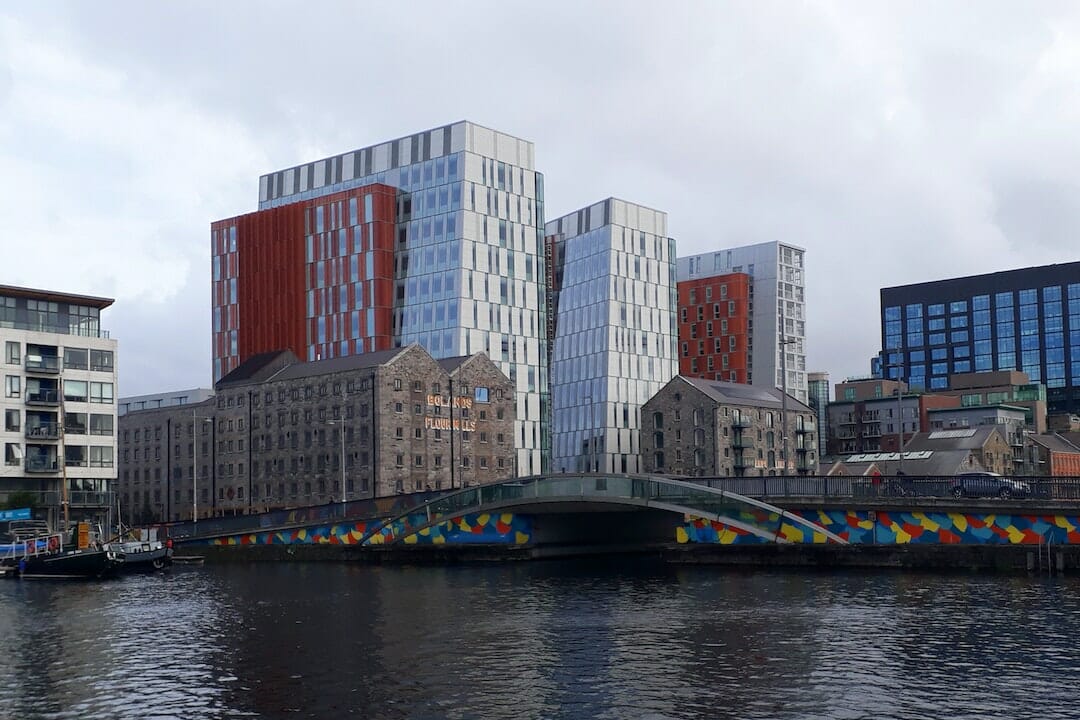Investing in commercial property in Ireland can be a lucrative opportunity for those seeking to diversify their investment portfolio. However, buying a commercial property can also be a complex and time-consuming process. It’s quite different to purchasing a residential property and there are several things to consider.
If you are interested in purchasing commercial property in Ireland, it is important to do your research and understand the legal and financial considerations involved. In this article, we will explore everything from what commercial property is, and what you need to know about buying commercial property in Ireland. We’ll also look at the types of commercial property available, the legal considerations involved and the financial implications of purchasing commercial property.
WHAT IS A COMMERCIAL PROPERTY?
Commercial property is a type of property that is used primarily for business or commercial purposes. Commercial properties can include office buildings, retail stores, warehouses, industrial buildings, apartment buildings, hotels, and mixed-use properties that combine multiple types of commercial properties.
Commercial properties are typically purchased for investment purposes and can generate income through rent or lease payments. They are often more expensive than residential properties due to their potential for higher income and greater demand.
Commercial properties are subject to different legal and financial considerations than residential properties, and the process of purchasing and managing commercial properties can be more complex.
WHY INVEST IN COMMERCIAL PROPERTY?
Commercial properties tend to offer a higher return on investment compared to residential properties making them a lucrative investment opportunity for anyone looking to break into the market. There are several reasons why investing in commercial property in Ireland can be an attractive option for investors:
- Stable and growing economy. Ireland has a stable and growing economy with a business-friendly environment that attracts international investors. The country has a low corporate tax rate, a skilled workforce and a well-developed infrastructure which makes it an attractive destination for foreign businesses.
- Strong rental market. The rental market for commercial property in Ireland is strong with high demand for office and retail space in major cities like Dublin, Cork and Galway. This high demand has led to a supply shortage in some areas which can drive up rental rates and provide the potential for rental income growth.
- Favourable real estate market conditions. The Irish real estate market has rebounded strongly from the global financial crisis of 2008 and 2009. Property prices have been increasing steadily since 2012 and the market has shown resilience in the face of Brexit as well as other economic challenges.
- Attractive investment returns. Commercial property in Ireland can provide attractive investment returns through rental income and capital appreciation. The country’s economic growth and strong real estate market conditions can provide opportunities for investors to generate long-term returns.
- Diversification. Investing in Ireland’s commercial property can diversify an investor’s portfolio. Commercial property can offer a different risk and return profile than other types of investments, such as stocks or bonds.
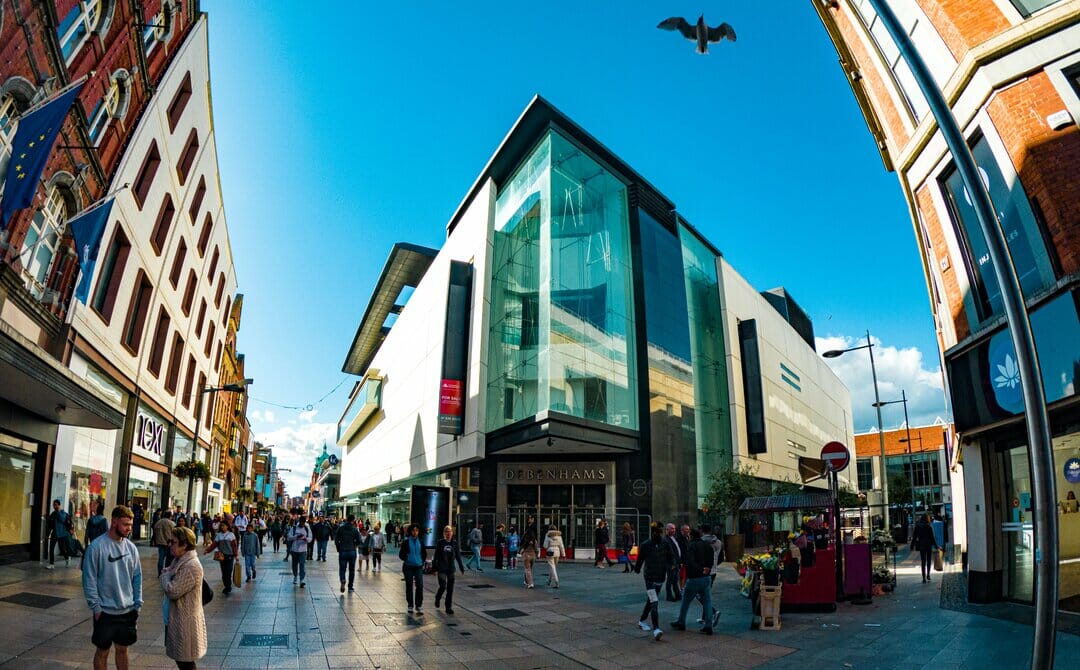
WHAT DO I NEED TO BUY A COMMERCIAL PROPERTY?
In order to buy a commercial property, you’ll need to go through several steps to purchase the property and decide if it is right for you. We’ve summarised these below:
- Financing. The first step in buying a commercial property is determining how you will finance the purchase. This may involve obtaining a commercial mortgage, securing investment from partners or using your own funds. It’s essential to clearly understand your financing options and work with a financial advisor or accountant to determine the best approach for your needs.
- Research. Before making an offer on a commercial property, it’s important to do your research. This may include researching the local property market, assessing the potential demand for your business or tenants as well as evaluating the property’s location, size, and condition. Consider consulting with an estate agent or property consultant specialising in commercial properties to better understand the market and the specific property you’re interested in.
- Legal advice. Commercial property transactions can be complex and it’s vital to have expert legal advice throughout the process. This may involve hiring a solicitor or conveyancer to review contracts, negotiate terms and ensure the transaction is legally sound.
- Due diligence. As part of the buying process, it’s important to conduct due diligence to assess the property’s condition, identify potential issues or risks and ensure that the property is suitable for your intended use. This may involve conducting a property inspection, reviewing surveys and reports as well as evaluating environmental or planning issues.
- Negotiation. Once you’ve identified a commercial property that meets your needs, you’ll need to negotiate the purchase terms with the seller or their agent. This may involve negotiating the price, financing terms and other conditions of the sale.
- Closing. The next step is to complete the transaction once the purchase terms have been agreed upon. This may involve signing contracts, transferring funds and obtaining any necessary permits or licenses.
TYPES OF COMMERCIAL PROPERTIES
Commercial property can refer to various property types, including office buildings, retail spaces, industrial buildings and warehouses. When considering purchasing commercial property in Ireland, it is important to consider the type of property that best fits your investment goals, interests and objectives.
- Office Buildings. Office buildings are commercial properties primarily used for professional services. They may include single-tenant or multi-tenant shared spaces, ranging from small, standalone buildings to large, multi-story office complexes.
- Retail Space. Retail spaces are commercial properties that are used for the sale of goods and services. They may include strip malls, shopping centres and standalone stores.
- Industrial Buildings. Industrial buildings are commercial properties that are used for manufacturing, distribution or storage purposes. They may include warehouses, factories and distribution centres.
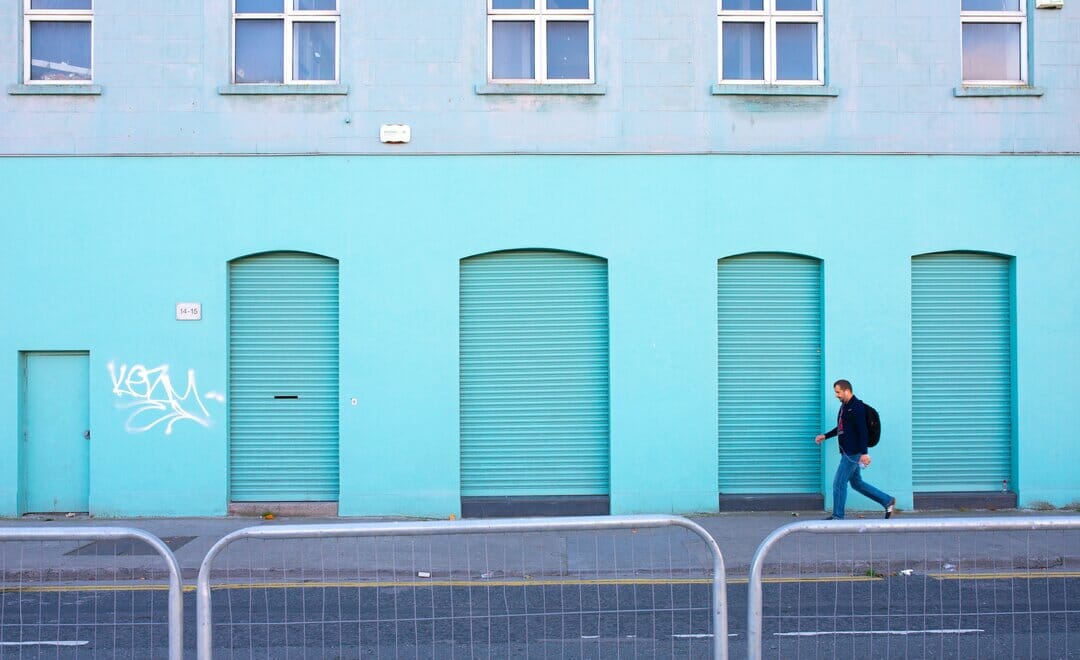
LEGAL CONSIDERATIONS
When purchasing commercial property in Ireland, you’ll need to understand the legal considerations involved. Below is a list of key considerations when buying commercial property:
- Zoning. Ensuring the property is zoned for the intended use is essential. The local zoning authority will be able to provide information on the zoning regulations in the area.
- Planning Permission. In Ireland, planning permission is required for most new developments or changes to existing properties. It is important to obtain planning permission before making any significant changes to the property.
- Title. Before purchasing a commercial property, conduct a thorough title search to ensure that the seller has legal ownership of the property and that there are no outstanding liens or encumbrances.
- Leases. If the property is leased, be sure to review the lease agreements to understand the terms and conditions of the lease, including any restrictions on the use of the property.
FINANCIAL CONSIDERATIONS WHEN PURCHASING A COMMERCIAL PROPERTY
When purchasing commercial property in Ireland, take time to consider the financial implications of the purchase. Here are some key financial considerations to keep in mind:
- Financing. Commercial property purchases are typically financed through a combination of equity and debt. You’ll need to work with a lender specialising in commercial property financing and clearly understand the loan terms and conditions.
- Taxes. Commercial property owners in Ireland are subject to various taxes, including property taxes and capital gains taxes. It is essential to understand the tax implications of owning commercial property and to work with a tax professional to ensure compliance with all tax laws.
- Insurance. Commercial property owners are typically required to carry a variety of insurance policies, including property insurance and liability insurance. Work with an insurance professional to ensure that the property is adequately insured.
- Maintenance. Commercial property owners are responsible for maintaining the property and ensuring that it remains in good condition.

CAN YOU LIVE IN A COMMERCIAL PROPERTY IN IRELAND?
In most cases, living in commercial property in Ireland is not legal. This is because commercial properties are not approved for residential purposes. Commercial properties are zoned for commercial use so local authorities and planning departments have strict regulations in place that restrict the use of commercial properties.
However, there are some exceptions to this rule. For example, some commercial properties may have residential units above or adjacent to the commercial space such as a flat or apartment. These residential units may be legally approved for use as a dwelling.
Additionally, in some cases, local planning authorities may grant permission for a change of use from a commercial property to a residential property. However, it’s worth mentioning that this can be a lengthy and complicated process.
It is important to note that living in a commercial property that is not legally approved for residential use can result in serious health and safety risks as these properties may not meet the same building and safety standards as residential properties. Therefore, it is always advisable to consult with a qualified professional, such as an estate agent or a solicitor, before considering purchasing a commercial property to live in.
WHO NEEDS COMMERCIAL PROPERTY INSURANCE?
If you own a commercial property in Ireland, it is important to have commercial property insurance to protect your investment against potential risks and hazards. Commercial property insurance typically covers damage or loss to the property itself as well as liability for any injuries or accidents that may occur on the property. Commercial property insurance is not legally required in Ireland but is strongly recommended.
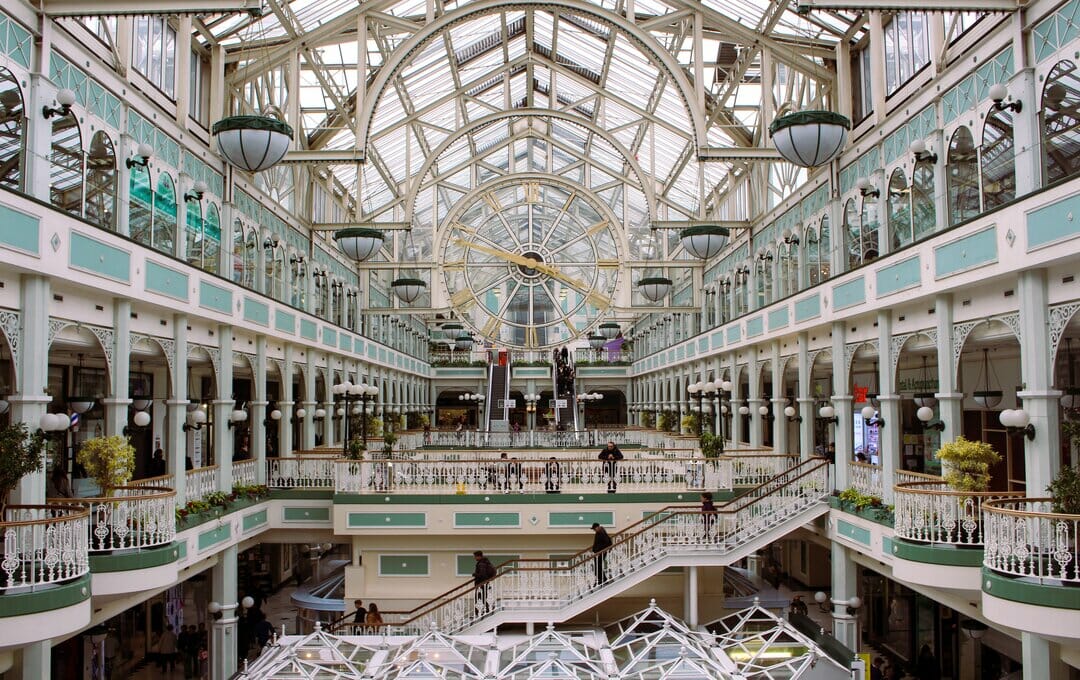
Some of the common types of coverage available under commercial property insurance in Ireland include:
- Building coverage. This coverage protects the physical structure of the property against damage or loss caused by fire, theft, natural disasters or other covered perils.
- Business interruption coverage. This coverage provides financial compensation for lost income and other expenses if the property is damaged or destroyed and the business cannot operate.
- Liability coverage. This coverage protects the property owner against legal liability for any injuries or accidents that may occur on the property.
- Contents coverage. This protects the property’s contents, including furniture, equipment, and other items, against damage or loss.
- Flood coverage. This coverage provides protection against damage or loss caused by floods which are not typically covered under standard commercial property insurance policies.
The cost of commercial property insurance can vary widely depending on the level of coverage required and the property’s risk profile. Some factors that may influence the cost of commercial property insurance in Ireland include the property’s location, the building’s age and condition, the presence of any hazardous materials and the type of business operating on the property.
To determine the appropriate level of coverage and the cost of commercial property insurance for your specific property, it is recommended to consult with a qualified insurance professional who can assess your needs and provide tailored recommendations.
WHAT IS THE STAMP DUTY ON COMMERCIAL PROPERTY IN IRELAND?
In Ireland, the stamp duty on any non-residential property is currently 7.5% which increased from 6% in October 2019. However, if the land purchased is used to develop dwelling units, it may qualify for a refund of up to two-thirds of the stamp duty rate paid.
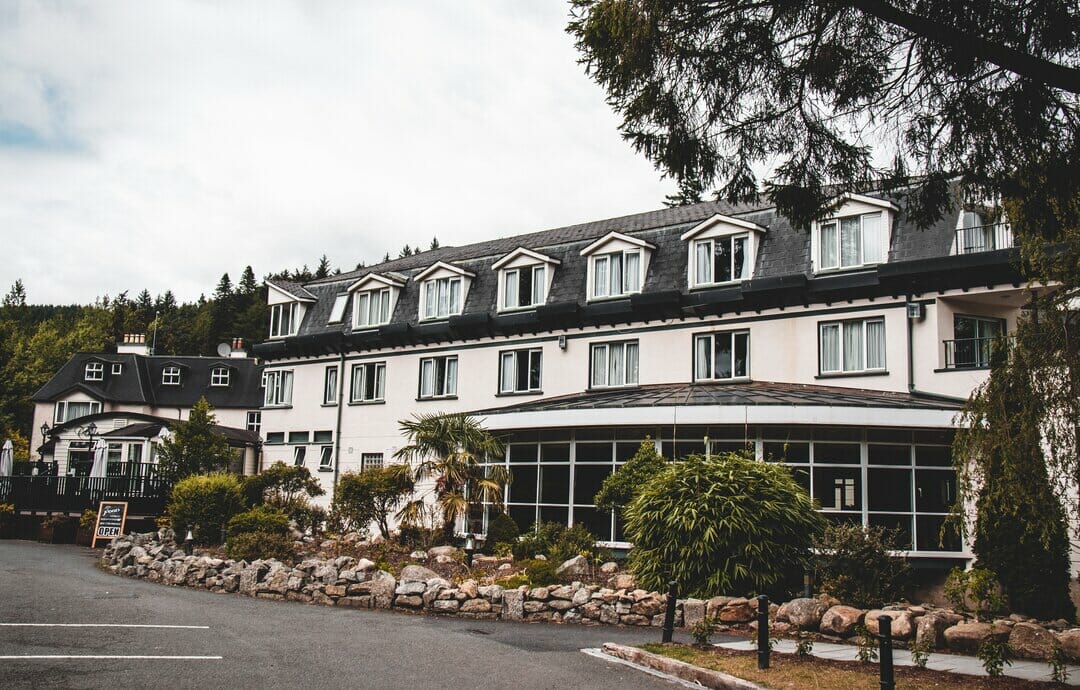
CAN YOU GET A MORTGAGE ON A COMMERCIAL PROPERTY IN IRELAND?
Yes, obtaining a mortgage to purchase a commercial property in Ireland is possible.
Commercial mortgages are available from various lenders, including banks, credit unions and specialist mortgage providers.
However, it’s essential to understand that the lending criteria for commercial mortgages may differ from those for residential mortgages and the application process can be more complicated.
When applying for a commercial mortgage in Ireland, lenders will typically consider factors such as the type and location of the property, the borrower’s credit history and financial standing, the borrower’s business plan and projected income as well as the loan-to-value ratio (LTV) of the property.
The LTV ratio is the loan amount divided by the property’s value expressed as a percentage. Lenders typically prefer a lower LTV ratio which means that the borrower is providing a larger down payment and has more equity in the property.
The terms of a commercial mortgage in Ireland can vary depending on the lender and the specific property. Some lenders may offer fixed or variable interest rates, while others may require a balloon payment at the end of the loan term. The loan term can range from 5 to 25 years or more, depending on the lender and the borrower’s needs.
BRIDGING LOANS FOR COMMERCIAL PROPERTIES
Sometimes investors in commercial properties will need to act quickly and traditional finance can take months to arrange. When funds are tied up in your existing portfolio, alternative finance must be arranged or you risk losing out on your ideal property.
In these circumstances, an investor might consider a commercial bridging loan to bridge the gap between a property purchase and arranging a commercial mortgage. Bridging loans can be arranged much faster than a traditional mortgage and the application process is typically less complex.
FINAL WORD
In summary, investing in commercial property in Ireland can be both rewarding and lucrative. As long as you have a solid business plan and have considered all the legal and financial aspects of commercial property investment, you can successfully add commercial property to your portfolio to diversify your investments. If you are considering bridging finance to secure a commercial property, contact us for more information.

